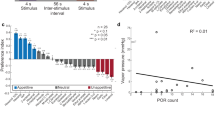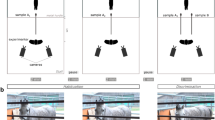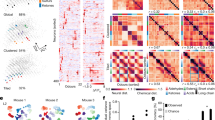Abstract
ABOUT ten years ago, Alexey Bogoslavsky and Krikor Kekcheyev in Moscow and Alexander Dolin in Leningrad, working independently, demonstrated experimentally that the sensitivity of the human sense organs may be considerably modified under the influence of an indifferent factor, for example, the weak beat of a metronome, if it is accompanied several times by the influence of an active excitor. It was found that the latter, acting on an appropriate sense organ (for example, a sweet substance on the taste organ, or an odorous substance on the sense of smell), simultaneously changed the sensitivity of the entire sensory sphere of the brain. As in other conditioned reflexes, already studied, in which the excited organs were the salivary glands or definite groups of muscles, so in the case of our sensory conditioned reflexes, one rule must be observed: the formerly indifferent, or, as Pavlov called it, the conditioned excitor must be 'reinforced' several days in succession by the action of an excitor which by itself always produces the desired effect (unconditioned excitor).
This is a preview of subscription content, access via your institution
Access options
Subscribe to this journal
Receive 51 print issues and online access
$199.00 per year
only $3.90 per issue
Buy this article
- Purchase on Springer Link
- Instant access to full article PDF
Prices may be subject to local taxes which are calculated during checkout
Similar content being viewed by others
Author information
Authors and Affiliations
Rights and permissions
About this article
Cite this article
KEKCHEYEV, K. Conditioned Excitors and Human Sense Organs. Nature 156, 573–574 (1945). https://doi.org/10.1038/156573a0
Issue Date:
DOI: https://doi.org/10.1038/156573a0
Comments
By submitting a comment you agree to abide by our Terms and Community Guidelines. If you find something abusive or that does not comply with our terms or guidelines please flag it as inappropriate.



